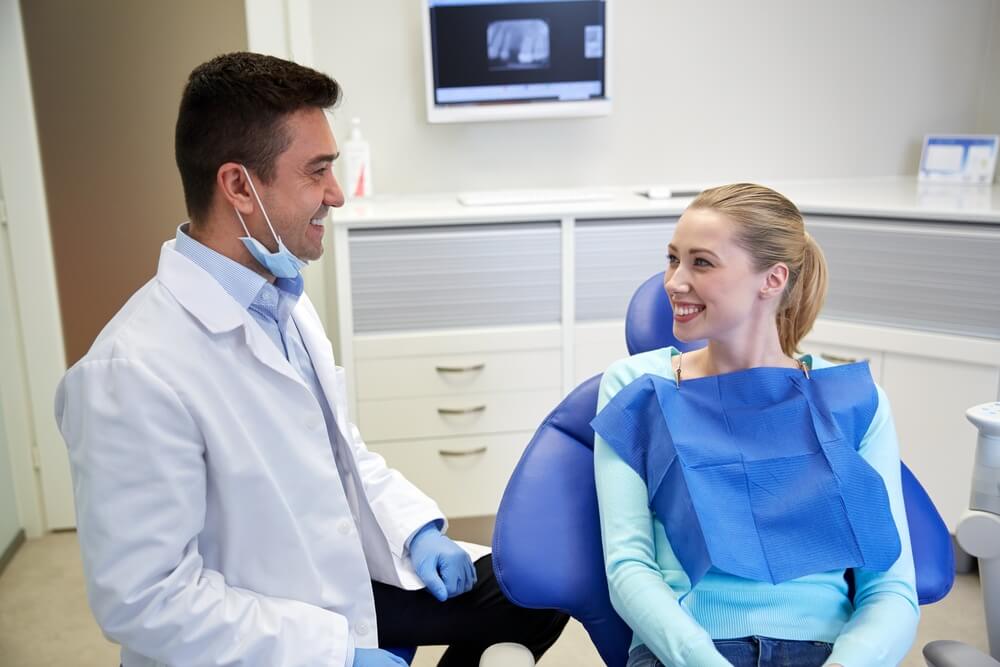What is a general dentist for? You probably know they are the ones who clean your teeth and tell you to floss more. But their role encompasses so much more than that. They’re your primary oral healthcare provider, responsible for your overall dental well-being from childhood through adulthood. This article explores the role of a general dentist, the procedures they perform, why regular visits are crucial, and how their expertise contributes to your overall health.
What Does a General Dentist Do?
A general dentist is the first point of contact for most people when it comes to dental care. They diagnose, treat, and manage your overall oral health. Think of them as the “quarterback” of your dental team. While specialized dentists focus on specific areas like orthodontics or periodontics, general dentists provide a wide range of services to maintain optimal oral health by preventing, diagnosing, and treating various dental issues.
Preventive Care in General Dentistry: Your First Line of Defense
Regular checkups are vital for maintaining good oral hygiene. During these visits, your general dentist examines your teeth and gums, looking for early signs of decay, gum disease, or other potential problems. They may take X-rays to get a more comprehensive view of your dental structure.
Your dentist will also professionally clean your teeth, removing plaque and tartar buildup. These harmful substances, if not removed, can cause tooth decay and gum disease. Educational guidance also forms a significant part of preventive care. Your general dentist will provide personalized tips and instructions on effective teeth and gum care, including proper brushing and flossing techniques.
In some cases, they might also recommend fluoride treatments or dental sealants for additional protection against decay, especially for children. These treatments are part of primary dental care and can help prevent future health problems and the need for more extensive dental procedures down the line. A visit to your general dentist should be a priority for patients’ oral health.
Restorative Procedures: Bringing Back Your Smile
Sometimes, despite our best efforts, dental issues can arise. This is where the restorative expertise of your general dentist comes into play.
Here’s a table summarizing common restorative procedures performed by a general dentist:
| Procedure | Description |
| Fillings | Used to repair teeth affected by decay, fractures, or wear. |
| Crowns | Caps are placed over damaged or weakened teeth to restore shape, size, and strength. |
| Bridges | Fixed appliances used to replace missing teeth, anchored to adjacent natural teeth. |
| Root Canals | Removing infected or damaged tissue from inside a tooth to save it from extraction. This procedure is also known as canal therapy. |
| Dentures | Removable replacements for missing teeth and surrounding tissues, available in partial or complete sets. |
| Dental Implants | Artificial tooth roots are surgically placed into the jawbone, providing a strong foundation for permanent or removable replacement teeth. |
Dentists utilize a variety of techniques to restore the function and aesthetics of damaged teeth. This includes procedures to replace damaged teeth as well. While your general dentist may not perform every procedure themselves, they will provide appropriate referrals to specialists if needed, such as an endodontist for root canals or a prosthodontist for dentures or implants.

Cosmetic Procedures: Enhancing Your Smile
Beyond the essential health aspects, what is a general dentist for when it comes to enhancing your smile? Many general dentists also offer a range of cosmetic procedures to improve the appearance of your teeth. These treatments focus on improving your smile’s aesthetics, boosting your confidence, and making you feel great about your appearance.
Popular cosmetic services offered by a general dentist can include teeth whitening to brighten discolored teeth and give you a sparkling smile. There’s also cosmetic bonding. This involves applying a tooth-colored resin material to correct minor chips, cracks, or gaps between teeth.
Reasons to Visit the Dentist for Cleanings and General Dentistry Services
Regular dental visits are crucial for maintaining good oral health and catching potential issues before they become serious. Many people tend to delay their dental appointments until something is wrong, but preventive care can save you from more complex and costly treatments down the road. Below are some important reasons to visit the dentist regularly:
- Prevent Cavities and Tooth Decay: Regular cleanings and exams help remove plaque and tartar buildup, preventing cavities and tooth decay before they start.
- Gum Disease Prevention and Treatment: Dentists can detect early signs of gum disease and provide treatments to prevent it from progressing into a more serious condition.
- Detect Oral Cancer Early: Oral cancer screenings during dental visits can help detect this potentially life-threatening condition in its early stages, making treatment more effective.
- Maintain Fresh Breath: Regular cleanings help remove bacteria and food particles that cause bad breath, ensuring fresher breath and better oral hygiene.
- Preserve Your Smile with Professional Cleaning: Even with good at-home oral care, plaque and tartar can still build up in hard-to-reach areas. Professional cleanings can help maintain a bright, healthy smile.
- Protect Overall Health: Good oral health is linked to overall health. Regular dental checkups can reduce the risk of developing conditions such as heart disease, diabetes, and respiratory problems.
- Save Money on Future Dental Work: By catching issues early, dentists can often treat them with less invasive, less costly procedures, helping you avoid expensive treatments in the future.
Visiting the dentist regularly is an essential part of maintaining not only your oral health but your overall well-being.

Why Regular Visits to Dentists Are Crucial for Your Health
Now you have a better idea of their services. But what is a general dentist for in the long run? Maintaining a regular dental check-up schedule, ideally twice a year, can significantly contribute to your overall well-being.
Early detection of dental problems is crucial for simpler and more effective treatments. Waiting until a problem becomes severe can lead to more invasive and costly procedures down the road. Think of it like this – getting a cavity filled is far less intensive (and expensive) than needing a root canal and a crown because you waited too long. Beyond preventing major dental issues, regular dental visits can also positively impact your overall health.
Your primary dental care provider can also screen you for oral cancer, a serious health condition that often goes undetected in its early stages. They also receive education courses throughout their careers to stay updated on the latest advancements in dentistry. Dentists completed extensive training, including dental school, and are well-equipped to provide comprehensive oral care.
Additionally, general dentistry offers treatments for various dental diseases and conditions. Some procedures general dentists perform include teeth cleanings, treating decayed teeth, and tooth extractions. A general dentist can also help with replacing missing teeth, using options like bridges, dentures, and implants.
Topics of Interest
Pediatric Dentistry
A pediatric dentist specializes in caring for children’s teeth, offering services designed specifically for young patients. From teaching good oral hygiene to performing essential treatments like sealants and fluoride applications, pediatric dentists are experts in ensuring children’s smiles remain healthy.
Cosmetic Dentistry
If you want to transform your smile, a cosmetic dentist can help you achieve that goal with treatments such as teeth whitening, veneers, and bonding. Cosmetic dentists focus on improving the appearance of your teeth, helping you feel more confident.
Orthodontics
An orthodontist specializes in diagnosing and treating misaligned teeth and jaws, offering treatments like braces or clear aligners to straighten your teeth. Whether you’re seeking orthodontic treatment for yourself or your child, orthodontists provide solutions tailored to every age.
Periodontics
A periodontist focuses on preventing, diagnosing, and treating gum diseases, as well as placing dental implants. If you’re experiencing gum issues like bleeding or receding gums, a periodontist can help restore your gum health.
Dental Hygienists
A dental hygienist plays a crucial role in maintaining your oral health by providing regular cleanings, checking for signs of gum disease, and educating patients on good oral hygiene practices. Regular visits to a dental hygienist are essential for keeping your teeth and gums healthy.
Prosthodontics
A prosthodontist specializes in restoring and replacing teeth, whether through crowns, bridges, or dentures. They are experts in rehabilitating complex dental conditions and improving the function and appearance of your smile.
Tooth Extractions
Tooth extractions may be necessary for a variety of reasons, from impacted wisdom teeth to decayed or damaged teeth. Your dentist for tooth extractions will ensure the procedure is performed safely and comfortably.
Root Canals
A root canal dentist is skilled in performing procedures to save teeth that have been severely damaged or infected. By removing the infected tissue inside the tooth, a root canal can relieve pain and prevent further issues.
Crowns and Bridges
Crowns and bridges are common restorative procedures that dentists use to repair damaged teeth or replace missing teeth. A dentist specializing in crowns and bridges can help you restore your smile’s appearance and function.
Dental Implants
If you are missing one or more teeth, dental implants offer a permanent solution for tooth replacement. A dental implant dentist can replace the roots of missing teeth with artificial ones, providing a stable foundation for replacement teeth.
Gum Disease
Gum disease can lead to serious oral health issues if left untreated, but with the right care, it can be managed effectively. A dentist specializing in gum disease can diagnose and treat conditions like gingivitis and periodontitis.
Braces
Braces are an effective way to straighten teeth and improve bite alignment. A dentist who specializes in braces can guide you through the process, whether you’re considering traditional metal braces or clear aligners.
Veneers
Veneers are a popular cosmetic treatment for improving the appearance of teeth that are chipped, discolored, or misshapen. A dentist for veneers can apply thin porcelain shells to the front of your teeth, creating a beautiful, natural-looking smile.
Dentures
For patients who have lost most or all of their teeth, dentures provide a removable option for restoring function and aesthetics. A dentist who specializes in dentures can fit you with full or partial dentures, helping you regain confidence in your smile. Discover the different types of dentures and how they can help you replace missing teeth.
Conclusion
What is a general dentist for? They are so much more than just teeth cleaners. They’re partners in your overall health journey, ensuring you have a healthy and bright smile for years to come. Regular checkups, preventive care, and timely treatments are the key. This proactive approach, combined with a good oral hygiene routine at home, will keep your smile healthy and radiant.
Ready to take control of your dental health? Contact Pinnacle Dental Group today to schedule your appointment and experience comprehensive, caring dentistry on Monroe tailored to your needs. Let us help you maintain a healthy smile that lasts a lifetime!
